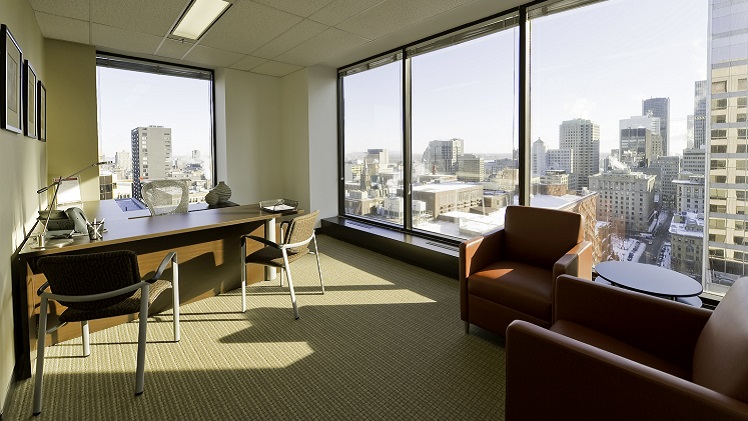A couple of days ago, Regus (the famous workspace company) did some research involving over 44,000 people and 100 companies, and they apparently realized that 61% of people actually had a home office. Given Sri Lanka’s baby steps towards letting people work from home, it made for an interesting read. Nevertheless, Regus concluded that working at home was actually bad for you, citing the following problems with workspaces:
- Less support from companies – While a 1/5th said that it would take a whole month’s salary for them to properly equip a professional working space within their home, only around a 1/3 (34%) reported that their company had contributed to equipping their home office. This invariably means that companies that encourage home working were able to make a saving.
- Significant annual running costs – Respondents on average reported that running costs for a home office came to about $5000 or equivalent a year. In fact, around 50% of workers believe that helping workers create a professional workspace in their own homes can save businesses money in the long run.
- Hidden risks – 79% of respondents confirmed that companies that encouraged their employees to work from home are not aware that they must ensure health and safety standards are implemented and 77% reported that they do not take out the appropriate insurance cover on this home workspace. This revealed a hidden risk, as in order to achieve a relatively small saving, companies could potentially be incurring in all sorts of higher expenses by not regulating the environment their staff works from.
But here we have to stick the oar in and ask: is it really that bad?
The whole work-at-home thing is a debate that’s been raging on for quite some time. In fact, some time ago, we met Isura Silva of Sarvodaya Fusion who referenced a book called Remote, by 37signals, one of the most influential web app firms of the early 2000’s. They built stellar projects from the comfort of their homes, and even though now their books are literally better-known than their apps. 37signals made a mighty splash in the history of the Internet, and they did it from home.
On the other side of the fence was Peter Thiel, superstar investor who co-founded Paypal, invested in Facebook, LinkedIn, launched Clarium Capital and Palantir, and so on, and so forth – honestly, listing the guy’s investments alone would probably take a few hundred words. In his famous book “Zero to One”, Thiel advocated working at an office. He advocated making it a good office with a great culture, but going there nonetheless.
Of course, we can say that if you look at history, most of the great companies were built by people working together in one space. But that’s because working from home was never as viable as it is today.In the past, especially in Sri Lanka, a computer was a thing you had at office and meetings had to be face to face. Now we have laptops, a second laptop, a couch, Whatsapp, Facebook, Trello and Skype. It’s pretty amazing how conducive this is to working from home.
At Readme, we’ve tried both. For a couple of years we worked exclusively from home, or wherever we were roaming at the moment, meeting up once a month for teambuilding dinner splurges and movies nights.
Here’s our list of pros and cons of the whole deal:
THE GOOD
- No commute, which saves you an hour of time, some change and a whole lot of frustration
- You can actually start work early, like, say, 4 AM
- Allows you to tailor work hours to your own natural schedule (for example, I edit in the morning till noon, sign off, then write from 5pm to 7pm, take a short break of about an hour while having dinner, then resume work and carry on till midnight)
- Company saves on equipment costs – for example, to replicate the custom-built PCs Mahesh and I use at home would take about Rs 250,000 per person and drive electricity costs through the roof.
- The ability to hire people with no geographic limits
THE BAD
- Distractions from the home environment – being “always available” for family isn’t always a good thing
- Gradually increasing sense of disconnect from goals and the others in the team
- The boundary of work and leisure gets too blurred – you end up playing Far Cry 4 when you really should be writing
- A deterioration in instant communications
Of the bad points, we found that the first and the second heavily impacted our workflow. The second could easily be cured by bi-monthly physical meetups, but the first, for some reason, intruded. This may be due to the fact that by and large, Sri Lankan culture (especially from a family perspective) does not quite empathize with working from home or working outside the 9 to 5 regime. All of these can be dealt with, but we found it easier to move into an office, plaster it with Grumpy Cat posters and Startup Vitamins and just get cracking.
Strangely, despite what Regus or 37signals might have to say, there’s no clear-cut answer. In the 1920s, Floyd Henry Allport of Harvard showed that if you put a bunch of people together, they perform better at a whole set of tasks even though they’re not all working on the same thing. This leads many to conclude that the very presence of other people acts as a stimulant.
And yet a survey by Cisco, conducted in 2009, pointed out that as much as 69 percent of teleworkers claimed they worked better while working remotely and that over 80% of them said that team communication was unaffected or even improved in certain occasions. Microsoft’s whitepaper / advertisement, “Work Without Walls” says that while managers get nervous about the loss of control, the overwhelming majority of people feel better about working from home. And in 2014, a Forbes article by Laura Shin pointed that the 100 companies most likely to hire remotely included Xerox, Dell, Apple, IBM, Symantec, Adobe, Microsoft, Red Hat and Reuters – big companies with huge corporate infrastructure.
Times are changing.
But let’s get back to Sri Lanka. Before jumping the gun, it’s always wiser to look at multiple companies, multiple studies and diferent ways of doing things. Regus says working at home is bad, but that is not ironclad: it depends a lot on what you work on and what kind of co-workers you have. If you’re writing an article, for example, that’s something you can do alone, but brainstorming a new ad campaign is probably better done with actual people and markers and a whiteboard. There’s also the fact that a single toxic co-worker can actually ruin productivity in an office instead of helping it.
Perhaps one solution would be to let people work from home for most of the week, and then synchronize often with office days. That way, if someone’s lagging behind, or missing out of something, it can be easily corrected. Another, of course, would be to wait until everybody gets cyberbrain implants a la Ghost In the Shell and set up a completely virtual office experience, but let’s not get too ahead of ourselves.







GIPHY App Key not set. Please check settings